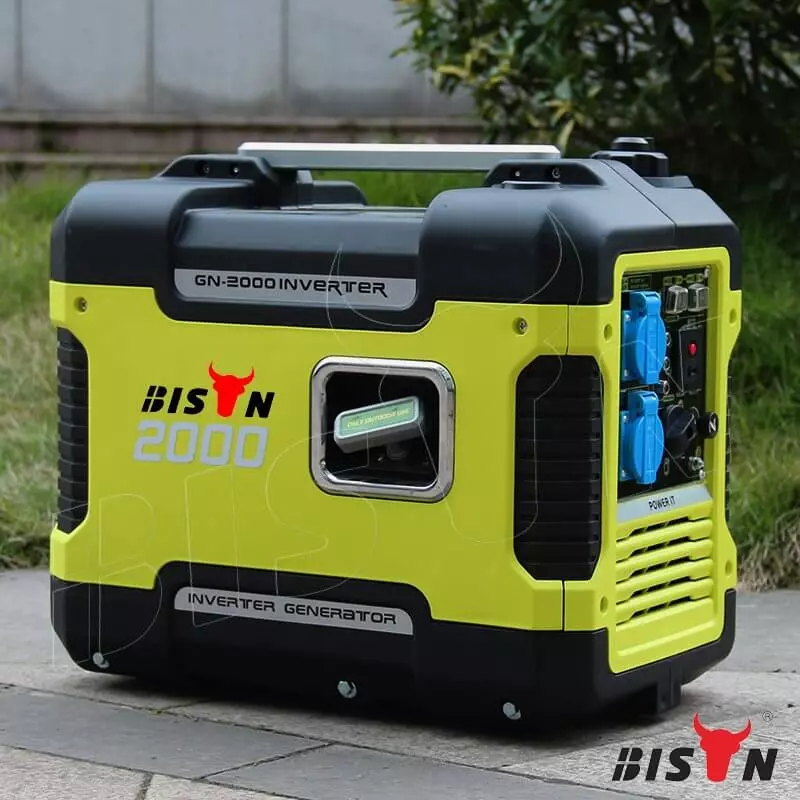From the noise it produces, the characteristic of the silent generator is its sound power and sound pressure value. In fact, whether it is a silent or open-frame generator, they are all measured in decibels (dB). Sound power refers to the noise emitted by a silent generator, but the sound pressure is always related to the location where the noise is measured. The farther away from the generator, the lower the sound pressure value.
In general, generators are considered loud or silent, depending on the level of noise emissions. Sound, or in this case, noise, is measured in decibels dB(A), and most standard generators have a noise level of around 80 dB.
Factors to consider when purchasing a silent generator
Noise level
The noise level of the generator is the main factor in determining the model. Many areas have noise regulations that may be used by generators, especially at night. Noisy generators are not suitable for many applications, including camping, powering outdoor activities, and RVs. Most generators are marked with a decibel level. For every 10 decibel increase, the noise level will increase 10 times. The volume of a generator running at 70 decibels is ten times that of a generator running at 60 decibels.
Silent generators typically produce around 50-65 dBA. Compare the noise levels of different models based on the environment in which you intend to use the generator to ensure you find the model that best meets your needs.
Different types of silent generators
The technology used and the type of generator are also indicators of the engine running sound. Now, silent generators can come in many types. So let's look at some common ones.
Portable generators: Portable generators have internal combustion engines primarily powered by gasoline or diesel. Of course, the best part is that you can take them wherever you go, on or off your property. At the same time, most are plug-and-play, and no installation is required.
Inverter generators: Inverter generators convert alternating current to direct current and back to alternating current. This is done with a combination of alternator and rectifier. Moreover, the output power has less harmonic distortion, making it ideal for sensitive electronic equipment. Portable inverter generators are not only more efficient, but they are also silent.
Backup generators: Backup generators are larger units that automatically take over if grid power fails. They are high-capacity generators with a unique muffler design. Mainly they are used in apartments, hospitals and various commercial establishments.
Solar generators: Finally, we look at solar generators that generate electricity from solar cells. They are the silent generators in their class because they don't have any engines. The main component is the battery, which stores electrical energy and provides it through an inverter. However, they do not have the same power level as gas generators.
In general, generators using inverter technology are the quietest, followed by home backup generators (when running on propane), and portable generators are the loudest. Certain fuel-type generators run much quieter than others. For example, solar generators are almost silent. Diesel generators are the noisiest, followed by gasoline and propane.
Engine size
Generally speaking, the bigger the engine, the louder the running noise, which also means that the more powerful generator may make more noise than the smaller capacity generator. When deciding what size silent generator to purchase, consider the wattage of the items you plan to use and choose one that can generate enough power for your needs.
Soundproof
The manufacturer can include several design details to reduce noise. Examples include mufflers, rubber sound-insulating materials, and sound-absorbing frames or shells. Of course, the different styles of these accessories will also affect the size of the noise.
Generator structure design
The exhaust pipe facing horizontally makes the loudest noise, and the generator with the exhaust pipe facing upwards will have a smaller sound because the sound waves propagate upward.
Automatic throttling
Many silent generators now feature an automatic throttle feature that adjusts engine speed according to the needed power. This helps save fuel and reduces noise levels because the engine doesn't have to run continuously at full power when not required.
Application of silent generator
The silent generator is very suitable for outdoor busy areas (campgrounds, markets) or private places (houses, offices, companies) that need to avoid annoying sounds.
* The DB value provided by all technical data of BISON silent generator is the sound pressure at 7m, that is, the average value of the sound pressure obtained in four directions 7 meters away from the generator.













